Epoxy floor coatings are in homes, commercial kitchens, around outdoor pools, basements and elite car garages. Epoxies protect concrete floors with a long-lasting and durable finish. Epoxy concrete contractors in Windsor, use materials that resist wearing, stains, moisture, and erosion.
With its affordable cost, why aren’t more Ontario homeowners investing in epoxy coatings?
Many believe the answer is a lack of awareness. This article will educate homeowners by sharing the benefits of epoxy flooring surface treatments.
Concrete Flooring Solutions
Finished concrete floors need some level of protection to avoid pitting, cracking, and other types of damage. A typical solution uses two coats of sealer with reapplication every 5-7 years.
Polished concrete floors are easier to manage than just waxed floors. Concrete polishing uses floor grinding equipment to grind surfaces to a high-gloss finish.
An even better solution uses designer epoxy floor coatings applied in two layers. The first layer helps the epoxy adhere to the concrete’s surface. The second layer creates a chemical bond between epoxies and concrete flooring surfaces.
Epoxy Flooring Installation
Epoxy flooring installations can provide benefits for the home and office. Some of the benefits include:
- Increased resistance to staining and fading
- Improved durability and longevity
- Easier cleaning and maintenance
The key to a successful epoxy floor is the selection of a good epoxy concrete contractor who knows all of the decorative concrete floor coating options and can suit them to your next project.
Concrete Floor Specialist
Select a concrete floor specialist that does both commercial and residential projects. They will focus on your goals and the expected benefits. They’ll also have a history of many projects that survived the scrutiny of oversight.
Epoxy Knowledge
You’ll want an expert who can determine what processes and materials are best for your floor. Only skilled epoxy concrete contractors will have the most knowledge on epoxy concrete flooring solutions include:
- Epoxy coatings
- Epoxy mortars
- Epoxy screeds
- Epoxy foams
- Resinous epoxy overlays
Epoxy Mortars
Epoxy mortars apply to surfaces primed with epoxy or epoxy-based primers. A trowel or sprayer is often used in the application and the epoxies cure for 24 hours. When mixed in larger batches, epoxy adhesion increases.
Epoxy Screeds
These epoxy polymers mix with sand or epoxy-compatible aggregates for a stronger surface. Its layers are often less than 1/8 inch thick.
Epoxy Foam
Epoxy foam provides high-density epoxy coatings that work well on petrochemical exposure surfaces. You can apply epoxy pavings using spray pavings as well as epoxy foams.
Resinous Epoxy Overlays
Resinous epoxy is longer-lasting than epoxy mortar or epoxy screeds. It adheres to concrete surfaces better than sand and gravel aggregated epoxies. Many contractors choose resinous epoxy overlays due to their high-gloss finish and durability.
Epoxy Benefits

Concrete-coated surfaces extend the life of concrete floors. Epoxies also address the aesthetics of the room. But epoxy concrete floors offer even more benefits including:
- Durable — Forms a durable chemical bond with the concrete surface
- Protects — Resistant to erosion, chemicals, abrasion, and oil stains
- Seals — Keeps out liquids while allowing moisture to escape
- Value — Increases home value
- Added Protection — Adds a layer of protection and design to step risers, pool decks, and pool walls
- Water Proof — Basement surfaces are protected against flooding and sewer backup
- Anti-Microbial — Resists the passing on of viruses and other bacteria
- Vapor Barrier — Protects surfaces from steam and other moisture
- Brightens Room — Reflects room lighting
- Aesthetically Pleasing — Artistic designs and colors present customizable looks
Maintain and Protect
Epoxies get used to seal cracks and gaps in walls to stop drafts from entering the room. Epoxies are ideal in heavy traffic areas to fight wearing and safety issues. This might include warehouses or factories where non-slip surfaces are critical.
As a top layer, epoxy seals and protects flooring and composite lumber. Chemical additives harden the epoxy to protect the floor from deterioration and accidental damage. This extra hardness also protects the floor from alkali, acids, and other chemicals.
Pros and Cons of Epoxy Flooring
Not all flooring systems are alike. Nor are the needs of the home or business owner the same. The following pros and cons of epoxy flooring bring clarity to both the good and bad sides of the solution.
CON — Strong Application Fumes
Wet epoxy has an unpleasant odor during application that is also hazardous. Epoxy personnel wears masks and safety glasses to protect themselves from the fumes. A further safeguard is ventilating the room during the application process.
After the coating has cured, there is no longer an odor unless the coating gets sanded again.
CON — Long Cure Rate
Epoxy flooring products take several days to cure, depending on the type of epoxy and degree of work. The duration for applications is usually 72 hours. Small spaces such as garages might take only 24 hours. Humid weather conditions or high foot traffic can also impact the curing time.
PRO — Slip Resistant
Epoxy is non-porous and slippery if additives are not applied. An application of epoxy cures as a smooth as a sheet of ice. In order to create traction, there is a specially formulated product that can be dispersed directly into the coating mixture called a grip traction additive. This helps to prevent slips and falls in the work place or for any home flooring.
PRO — Economical Flooring Choice
Epoxy is less expensive per square foot compared to other flooring choices. A lot of preliminary work isn’t needed, as epoxy can cover pre-existing concrete, wood, and steel. Also, the reapplication costs are lower, adding to its low lifetime cost.
PRO — Resistant to Damage
Epoxy coating is not susceptible to common wear and tear damage. It is low maintenance and won’t crack, peel, or erode like other flooring types. Cured epoxy is moisture resistant and withstands a significant amount of weight.
PRO — Withstands Temperatures
Epoxy holds up to temperatures as low as -60°F and up to 140°F. It handles dramatic temperature fluctuations faced in many areas. Epoxy is also fire-resistant.
PRO — Aesthetically Pleasing
Epoxy flooring is elegant and long-lasting. The coatings come in many finishes including granite, metallic, marbled, and a rainbow of hues. Customers can cover up the old floor with epoxy or install a new aesthetically pleasing one.
PRO — Protects Vehicles and People
Epoxy flooring is an easy, cost-effective way to protect your car’s tires and any other equipment on its surface. This is also a benefit for people walking on the surface to prevent falls and slips.
Epoxy coatings provide extra protection for many different surfaces including:
- Metal
- Wood
- Composite materials
- Asphalt paving products like linoleum
- Concrete expansion joints
- Fiberglass
You can have vinyl flakes added to improve traction.
PRO — Long Lifespan
While several factors affect epoxy’s lifespan, like climate and use, the product will outlive its competitors. Regular cleaning and professional installation can keep an epoxy floor in good condition for up to 20 years.
Epoxy Concrete Contractors
Finding a knowledgeable epoxy concrete contractor in the Windsor area can help you select the ideal floor. Our epoxy experts will ensure the quality and benefits of your new flooring project. You’ll enjoy the low maintenance and longevity of an epoxy floor.
To learn more about epoxy flooring, or to schedule a free estimate from our epoxy concrete contractors, get in touch today.

Devon has over 25 years of experience providing customers with high performance epoxy flooring to fit any need or budget. Referrals are our best friend and customer satisfaction is always our top priority. When Devon is not working you can find him fishing, or hunting across North America.
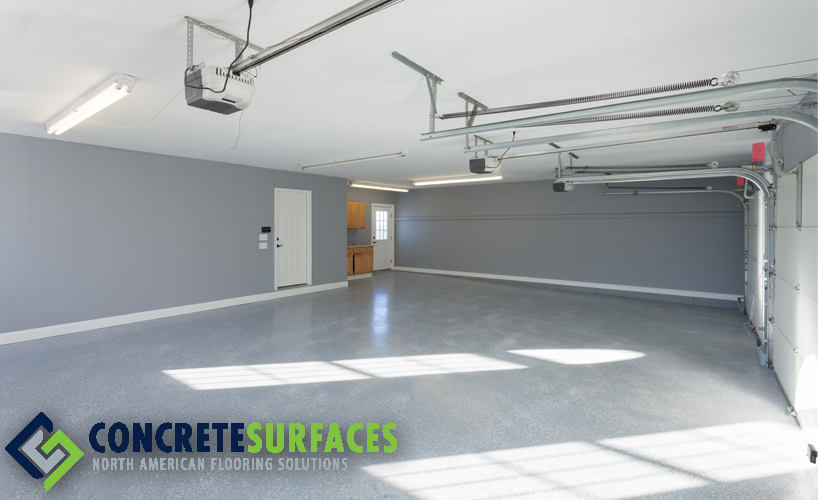

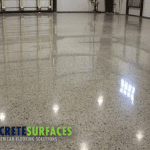
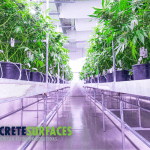
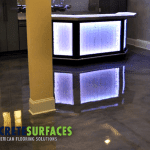
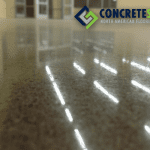
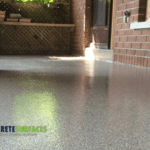
Share This Article
Choose Your Platform: Facebook Twitter Google Plus Linkedin